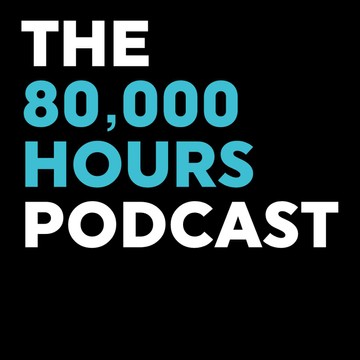

Elie Hassenfeld
Co-founder and chief executive of GiveWell, an organization that researches and recommends cost-effective charities and channels donations to high-impact global health and development programs.
Top 5 podcasts with Elie Hassenfeld
Ranked by the Snipd community

79 snips
Dec 2, 2024 • 51min
Get Happier, Help Others: Some Good Ideas About Giving
Elie Hassenfeld, Co-founder and CEO of GiveWell, dives into the transformative power of charitable giving. He discusses how spending on others often brings more happiness than spending on oneself. The conversation highlights effective charities and the importance of transparency in philanthropy. They explore the psychological barriers to giving and the evolving landscape of charitable contributions. Hassenfeld shares insights on empowering individuals through targeted donations, showcasing how strategic giving can make a real difference.

41 snips
Jun 2, 2023 • 2h 56min
#153 – Elie Hassenfeld on 2 big picture critiques of GiveWell's approach, and 6 lessons from their recent work
Elie Hassenfeld, Co-founder and CEO of GiveWell, shares insights from the organization's evolution in charity evaluation. He discusses the expansion of their focus to include subjective well-being and economic growth, challenging traditional metrics. Hassenfeld highlights impactful initiatives like clean water programs and Kangaroo Mother Care, emphasizing their effectiveness in health outcomes. The conversation critiques current philanthropic approaches and underscores the importance of adapting strategies to maximize charitable impact.

Oct 2, 2023 • 1h 12min
Elie Hassenfeld on GiveWell
Elie Hassenfeld, Co-founder and CEO of GiveWell, shares insights from his journey in philanthropy after leaving the finance world. He discusses the importance of rigorous data in evaluating charities, emphasizing the balance between local and global giving. The conversation dives into GiveWell’s recommendations for high-impact charities tackling global health issues, and the complexities of measuring charitable success. Hassenfeld also explores the nuances of altruism, donor behavior, and the role of transparency in enhancing philanthropic efforts.

Aug 28, 2025 • 1h 7min
Episode 372: Elie Hassenfeld - (Approximately) Optimal Philanthropy
Elie Hassenfeld, Co-Founder and CEO of GiveWell, discusses the intersection of data, ethics, and philanthropy. He explains how GiveWell uses rigorous evaluations to maximize the impact of charitable giving, advocating for transparency and moral considerations in donor decisions. Elie shares insights into the challenges of directing nearly $400 million annually toward effective health initiatives, the often-overlooked global health interventions, and the philosophical dilemmas faced in prioritizing interventions that save lives versus improving incomes.

Nov 22, 2023 • 50min
Effective Altruism & Giving Well w/ Elie Hassenfeld #752
Elie Hassenfeld, co-founder of GiveWell, discusses effective altruism, finding impactful charities without breaking the bank, and the internal change that occurs when giving money away.


